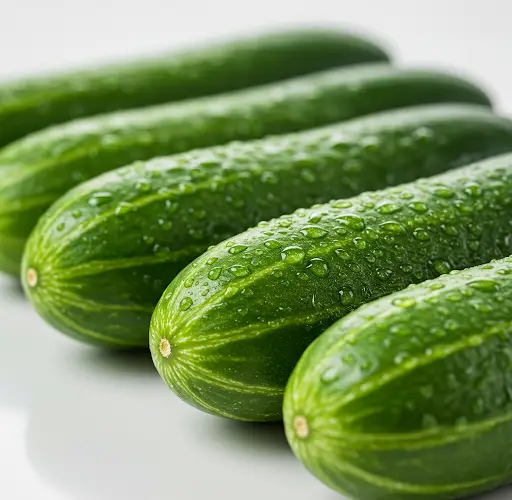The Best Natural Fertilizer for Cucumbers (and Tomatoes Too)
Cucumbers are a garden favorite—crisp, refreshing, and perfect for salads. They’re also relatively easy to grow, but they do have specific needs when it comes to soil, water, and nutrition. Unlike tomatoes, cucumbers have shallow roots and require more frequent watering. Additionally, they respond very well to high-quality feeding to ensure optimal growth and fruit production.
One of the most effective natural fertilizers for cucumbers—and occasionally tomatoes—that I’ve found is a simple two-ingredient solution made from milk and dry yeast. It’s incredibly easy to prepare, packed with nutrients, and supports both plant growth and soil health.
Ingredients:
-
1 liter of milk (any type, but avoid sweetened or flavored)
-
10 grams of dry yeast
-
Approximately 15 liters of water (including the milk solution)
How to Prepare the Fertilizer:
-
Combine the Milk and Yeast
Start by pouring 1 liter of milk into a container. Add 10 grams of dry yeast to the milk. Stir the mixture thoroughly until the yeast has fully dissolved. Let it sit for about 10 minutes to allow the yeast to activate slightly. -
Dilute in Water
After 10 minutes, pour the milk and yeast solution into a larger container filled with water. Altogether, this mixture should make about 15 liters of liquid fertilizer. Mix everything well to ensure even distribution. -
Alternative Method
If you’re using only milk (without yeast), simply dilute it with an equal amount of water—1 part milk to 1 part water. This method is also beneficial, though the combined effects of milk and yeast make the solution more powerful.
How to Apply:
Use this natural fertilizer to water your cucumbers and tomatoes every two weeks. Apply it directly to the soil around the base of the plants. Regular use provides ongoing nutrients and supports a healthy root environment, especially for cucumbers, which have more delicate root systems.
Why This Fertilizer Works:
The combination of milk and yeast is more than just a homemade remedy—it’s a scientifically sound approach to organic plant nutrition.
Nutrients in Milk:
Milk contains a wide array of nutrients vital for plant health. These include:
-
Nitrogen – essential for leaf and stem development
-
Potassium – important for fruit development and water regulation
-
Calcium – strengthens cell walls and prevents issues like blossom end rot
-
Phosphorus – supports root growth and flowering
-
Magnesium, Sulfur, and Other Trace Elements – aid in photosynthesis and enzyme production
These nutrients play a critical role in supporting various functions within the plant, including chlorophyll formation, energy transfer, and fruit production.
Additionally, milk can act as a natural pest deterrent. Some pests are repelled by lactose and other milk components, offering a mild layer of protection against certain insects.
Benefits of Yeast:
Yeast is rich in proteins, B vitamins, and beneficial microorganisms, including fungi and bacteria. These organisms enhance soil fertility and promote plant health in several ways:
-
Improved microbial activity – encourages the presence of good bacteria and fungi that assist in breaking down organic material and making nutrients available to plants
-
Better nutrient uptake – stimulates root growth and nutrient absorption
-
Disease resistance – some fungi in yeast can protect plants by outcompeting or deterring harmful pathogens
Yeast also introduces organic matter into the soil, improving structure and water retention.
Long-Term Benefits:
When used regularly, milk and yeast fertilizers contribute to healthier, more resilient soil. Over time, the organic matter they provide improves the soil’s ability to retain moisture and nutrients, which is particularly helpful during dry spells or for plants with shallow roots like cucumbers.
This approach supports sustainable gardening by reducing dependence on chemical fertilizers and fostering a thriving soil ecosystem. Healthier soil leads to stronger plants, higher yields, and better-quality produce.
Final Thoughts:
The milk and yeast fertilizer is a simple, natural, and effective way to give your cucumbers—and even your tomatoes—a powerful boost. With regular use every two weeks, this solution enhances soil health, boosts plant nutrition, and supports sustainable gardening practices. Whether you’re an experienced gardener or just getting started, this organic method is a great addition to your gardening routine.
Give it a try and enjoy healthier plants and more bountiful harvests—all from ingredients you likely already have at home.



